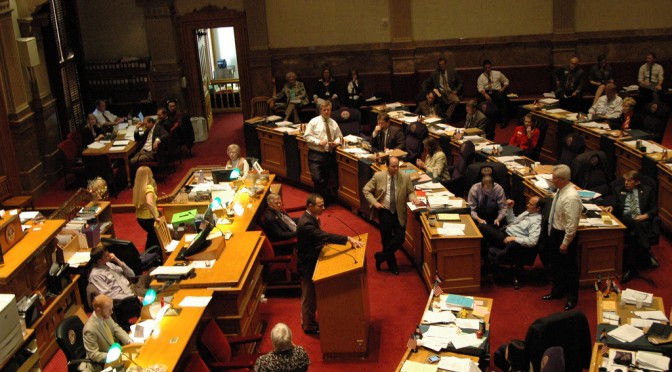Please join us for the fourth workshop of the Spring 2016 Term:
The Social Ontology and the Legitimacy of the People
Jonathan Kwan, The Graduate Center, CUNY
Thursday, May 12th, 2016, 12:30-2:00pm
Location: Room 5409
Please see the abstract for the talk below.
The Social Ontology and the Legitimacy of the People
Located at both the core and interstices of a wide array of political issues ranging from democratic legitimacy, global justice, self-determination, and secession, the concept of the people is a thorny and mercurial one—serving to play numerous normative roles and purposes. If democracy is rule by the people, who are the people? In this paper, I argue that the social ontology of the people should be understood as a group of persons that inhabits a bounded territory and engages in common activity to realize shared purposes, where such activity is continuously constituted by processes of collective decision-making that are or aspire to be in the form of binding laws and institutions. Any account of the people as bounded and thus exclusionary faces the membership question of who should be included as part of the people. Appealing to democratic decision-making procedures to answer this question generates an infinite regress since there will need to be a prior people to decide who is to be a member of the people, and so on and so forth. I consider and reject three responses to this regress problem, which include the view that the people is simply determined by contingent historical forces, the “all-affected interests” principle for determining the people’s scope, and the position that the demos is unbounded. The membership question and the infinite regress problem raises the issue of the legitimacy of the people. Namely, can the continued existence of a people over time as excluding some be legitimized? And if so, what would be required to attain and sustain this legitimacy? The approach I adopt to address this issue of the legitimacy of the people is twofold. First, I will argue that a people’s territorial boundedness is important for the exercise of meaningful self- determination over the particular location it inhabits. Many common activities of a people will be attached to a particular location itself and be given meaning by being pursued there and not elsewhere. A people’s territorial boundedness enables its members to decide for themselves how these place-related joint activities should be structured and shaped free from the interference of others. The necessity of a people’s boundedness, however, does not eliminate the need for its legitimization. Rather, since the very purpose behind a people’s boundedness is to secure self-determination, it must also respect the self-determination of those it constitutes as outsiders if it is to legitimize their exclusion. This will require at least that the people recognize the self- determination of other peoples, generally by respecting their sovereignty, and the right of people- less persons to be members of a people (Hannah Arendt’s ‘right to have rights’). The overall picture then is that the exclusion of some from a people is necessary to secure the meaningful self-determination of its members and that such exclusion is legitimate insofar as the people respects the self-determination of others that it constitutes as outsiders.



